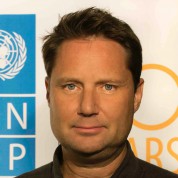PS 3.6
Multi-sectoral Policies and Practices: Adaptation
29
Jan
Adaptation action advances climate-resilient communities, ecosystems, and economies, with particular focus on vulnerable populations – the poor, women, and indigenous peoples. These groups are often the most vulnerable to climate change and are at greater health risk of its impacts. A single shock (e.g. a storm) or slow onset impact (such as sea level rise) can exacerbate existing vulnerabilities and increase the likelihood of locking communities already at risk into cycles of poverty. Support to countries to respond to the ongoing impacts of climate change and to prepare for likely impacts, including uncertainty, in the future, is imperative.
Climate change puts the healthcare system at risk by threatening infrastructure through extreme weather and in meeting the growing demand for treating climate-induced illness. The integration of climate risks and health into national planning and budgeting processes and strategies through Health National Adaptation Plans (H-NAPs), Vulnerability and Adaptation Assessments (V&A’s), and National Adaptation Programmes of Action (NAPAs) is also a way of drawing attention to the issue. This enables countries to align their adaptation planning processes with their national development plans and other existing planning efforts while ensuring whole-of-society and multi-stakeholder engagement with key institutions, academia, civil society, NGOs, and the private sector.
The objective of this session is to share examples and ideas for multisectoral practices and policies to improve understanding of and action on climate change adaptation and health across regions and to discuss challenges and opportunities. We will focus on strategies and interventions to promote health and adapt healthcare systems for climate change conditions through policy reform, innovation and modeling, national adaptation plans, and early warning detection systems. Through support to countries on adaptation policy and programming, the intention is to leverage and catalyze financing – domestic public finance and private finance – to scale up adaptation action in the context of supporting health.
Biosketch
Douglas Webb
Gabriel M Leung
Giulia Loffreda
Kristine Belesova
Manjit Kaur Sohal
Montira Pongsiri
Rudolf Abugnaba-abanga
Sally Edwards
Sean Leung










